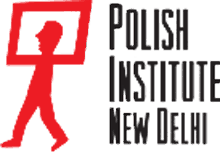Polish is the second largest Slavic language in the world in terms of the number of users. About 50 million people actively use it, and at least 10 million have a passive knowledge of it. Thus, Polish is the largest Slavic language in the European Union, its fifth ethnic language (ex aequo with Spanish Castilian, after German, English, French and Italian).
Polish belongs to the group of Indo-European languages and a subgroup of West Slavic languages (next to Czech, Slovak, Kashubian, Lower Sorbian, Upper Sorbian and – extinct – Polabian).
It is estimated that the average Pole actively knows about 30,000 words, and passively – understands about 100 thousand, but does not use them. According to some university polonists, it is enough to know the 1200 words most commonly used to be able to speak Polish.
The Polish alphabet is based on the Latin alphabet and consists of 32 letters. There are nine letters created using diacritical signs (ą, ć, ę, ł, ń, ó, ś, ź, ż). In addition, the language notation has seven more digraphs (sz, rz, cz, ch, dz, dź, dż) and one trigraph (dzi).
There is declination in Polish. For seven cases nouns, adjectives, adjectival participles, substantive, adjective and numeral pronouns and numerals change. Verbs, in turn, are conjugated by persons, tenses, modes, pages and numbers, as well as aspects.
The oldest sentence in Polish: “Day, ut ia pobrusa, a ti poziwai” (“Give me a break and you rest”) was written in the Latin alphabet in 1270 in Wrocław (in the Book of Henrykow on the World Remembrance List UNESCO). In 1285 at the congress in Łęczyca, it was decided that Polish would be used next to Latin in monastery and cathedral schools.
Polish was influenced by Latin, Greek, German, Czech, Ruthenian, Turkish, French, Italian, Russian, Hungarian and Yiddish. Currently, the greatest influence on him is the lingua franca of our time – English.
The main dialects of the Polish language are Greater Poland, Lesser Poland, Silesia, Mazovia, Chełmno-Kociewie-Warmia, and the North and South Borders.
More:
Multimedia Guide to Polish Language:
http://multimediaguides.culture.pl/multimediaguides/alphabet/the-polish-alphabet/0
Poland.pl: https://poland.pl/social-issues/social/polish-language-simple-language/
Information about where in the world you can learn Polish and about Polish book collections on the interactive map of Poland outside of Poland https://polski.msz.gov.pl/
Popularisation of the Polish language abroad: https://nawa.gov.pl/jezyk-polski
